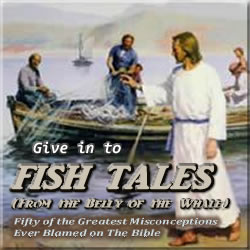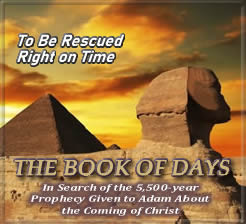The Joy of Cynicism
Because Doubt Comes So Easily to the Human Race
The story presented in The Bible isn’t one that describes a perfect world or a perfect people. And because it doesn’t, it’s argued that neither the human race nor the world were created by a perfect God. According to critics of The Bible, the presence of suffering, disease, and death in this imperfect world are undeniable proofs of their various claims regarding belief—or in their case, unbelief—in God. Either God doesn’t exist at all, or if a Supreme Being does exist, he clearly isn’t in control of the Universe and so is incapable of fixing what’s happening on Earth. Or perhaps, he’s just too busy with more important matters than that of caring for an unworthy species; or worst of all, he no longer gives a damn about us and has left us to our own devices from here on out.
However, in response to such lines of thought, I’d suggest an alternative interpretation of said proofs. I’d suggest, in light of the scriptural evidence in The Book of Genesis, that suffering, disease, and death are actually to be viewed in such a way as to flip the traditional script of the critics. And after reviewing said evidence in the following work, one might not only view suffering, disease, and death in a brand-new way but also the idea that God has been dethroned because the world isn’t filled with perfect little darlings who live up to the notion that we’re made in His image.
Story Continues Below
Says Richard Price—the founder and CEO of Academia.edu—on his podcast In Depth With Academia:
Conquering the Joy of Cynicism and the Death of Beauty: How Your Worldview Shapes the World You Live In is:
To hear Price’s book review of Conquering the Joy of Cynicism and the Death of Beauty, CLICK HERE.
To hear Kent and Zen Garcia talk about correcting biblical misconceptions, from June 23rd, 2021, CLICK BELOW.
Story Continues From Above
Admittedly, such a task isn’t an easy one. It will take a great deal of examining the scriptural record that’s available to us, as well as the human condition and the world as we know them today. That’s because any genuine understanding of humanity’s role on Earth as depicted in The Bible always requires tremendous effort, which is just another way of saying, the way of faith is hard—“real faith,” that is, not pseudo-faith, otherwise known as “blind faith.” In contrast to this “hard faith,” there is what I’d call “easy doubt,” otherwise known as “blind skepticism.”
Not that being skeptical about some things is always bad, but in comparison to real faith, skepticism can easily become like a bad habit that one doesn’t realize has suddenly become the norm. What began as a healthy critique of ultimate reality, in the face of so many abuses and misconceptions, soon turns into “easy skepticism,” and before you know it, skepticism has metastasized into that more malignant form of doubt known as “cynicism.” And once that happens, there’s virtually no known cure to the mindset of the “hardcore cynic.”
When it comes to such issues, then, of believing or doubting the claims of The Bible, it’s typically analyzed in terms of a person’s faith or lack thereof. As such, it’s said that if you have faith, you’re able to believe the message of Scripture; if you lack faith, then you can’t help but doubt that message. But upon further analysis, this seems to me to be a gross oversimplification. That’s because by narrowing the issue of belief in The Bible to a faith versus non-faith dichotomy, we’re actually no closer to understanding why some people believe in Scripture and others don’t. And by oversimplifying this issue, we’re nowhere nearer to understanding how a perfect God can co-exist with imperfect humans inhabiting an imperfect world.







